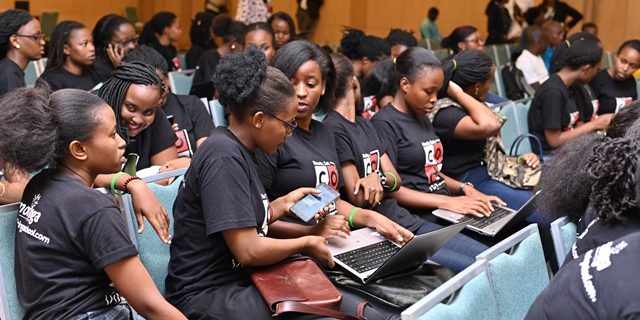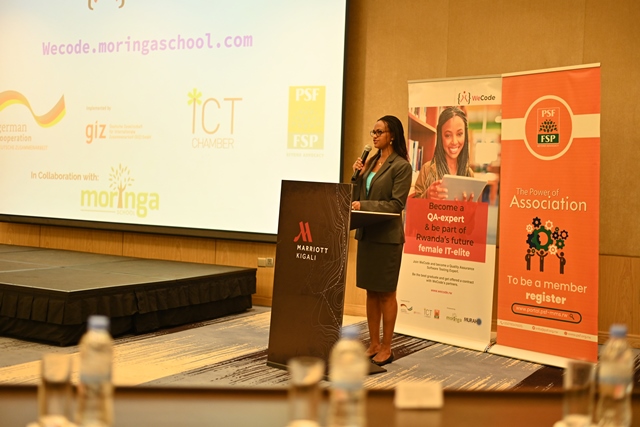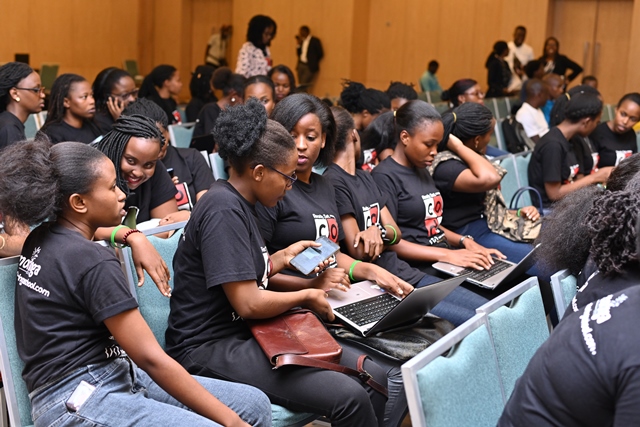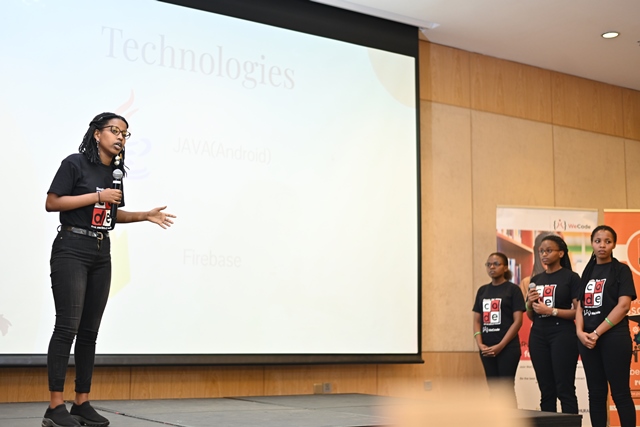The graduates
They are young, eager, all female, and the next software for your mobile telephone Application, may well be programmed by them.
They are WeCode graduates, an initiative launched by the Rwanda Private Sector Federation (PSF), to narrow the gender gap in Information and Communications Technology (ICT).
With support from the Ministry of ICT and Innovation, and the University of Rwanda, the initiative was launched last year, to train young women in programming.
The six months intensive training is provided by Moringa, a Kenyan based multidisciplinary coding school, founded in 2014 by Taiwanese American Audrey Cheng.
According to its publicity, the school is “committed to closing the skills gap in Africa’s job market, by offering high potential students the necessary technical and professional training in order to compete in the digital, global economy.”
The costly training at $1,800, or 1.6 million Rwandan Francs, is made affordable, by generous funding from the German Corporation for International cooperation (GIZ), reducing the cost to 25,000 Rwandan Francs for the entire six months.
At a careers day held at the Kigali Marriott hotel, the graduates were given an opportunity to present projects they completed, and to network with prospective employers.
And judging by the palpable confidence, and infectious enthusiasm of the graduates, the training may be worth every franc.
“It’s an amazing programme” enthused twenty year old Emma Nyirate, who has become a proselytiser for the training, “you don’t need to have a programming background to start, like me.”
“The teaching is more practical than theory, and I am now a junior Android programmer.” She gives an example of an app she and her friends developed, which pinpoints cinemas for instance, as long as there is an API, “Application Programing Interface Code” chipped in her friend Odette Ahishakiye, helpfully, also now an Android developer.
All together fourty-five women graduated last month. According to the head of the Moringa school in Rwanda, Yvette Uwineza, 80% of the first graduates in 2018, are now in employment in the Rwandan market.
The careers day was to both celebrate the women’s achievement, but more importantly, to try and match, or hopefully surpass last year’s success in placing the graduates in employment.
The trainees are self-selecting, based on their ability so that only the most able are left. Survival of the brightest,the most hardworking or both.
“The crème de la crème” according to the school’s head of operations, Raissa Kamariza.
Almost all of them are still in full time education, and combine the ICT training crash course, with their other studies.
Rwanda is regarded as a leader in gender equality, not only in the so called Global South, but, globally. The country sees ICT as an important driver in economic development, and has made narrowing the gender gap in the sector one of the key priorities.
As in every other sector, gender inclusion is closely monitored, and where needed targets and recommendations agreed to address what gaps exist.
Similar to elsewhere in the world, especially in lesser developed nations, Rwanda’s gender monitoring office identified a significant gender gap, in ICT, and WeCode is one of the many initiatives to close it.








